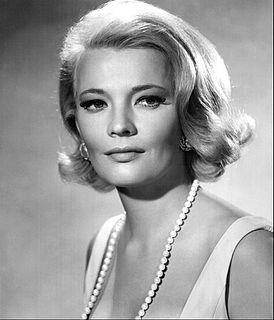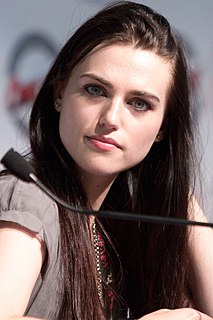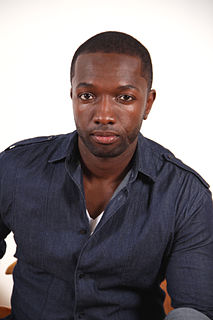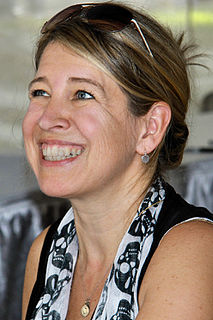A Quote by Graham Moore
Turing was always a legend among computer/geeky kids. He was such an outsider in his own time, and because of that, he was able to see things differently. It was a story that had been well told in books, onstage and on TV, but never on film.
Related Quotes
Because John Cassavetes was so terrific in live TV, a lot of his friends had not been able to participate in that yet and so they asked if he would gather with them at night when I was at the play and tell them what live TV was like, what you had to adjust to because it was its own medium - it had many things you had to be aware of.
Alan Turing is so important to me and to the world, and his story is so important to be told, so it was a big thing to take up, and I was a little petrified. Like, who am I to write the Alan Turing story? He's one of the great geniuses of the 20th century - who was horribly persecuted for being gay - and I'm a kid from Chicago.
I have always said the success of the show has stemmed from our audience being able to relate to the characters on different levels - being based on the universally loved Arthurian legend is only a tiny part of its success - it's a story about acceptance and growing up. The breathtaking finale of this series leaves you with no doubt that characters have been on their journeys and had their stories told - it's completely the right time to draw our telling of the story to a close.
I want to use film to tell stories that need to be told to spark discussions that will lead to change. I really want to see a change in the mindset of youth, how they see themselves and how they value life. Young audiences will be able to see themselves in this film and older audiences will gain an understanding of what their kids are dealing with on a daily basis. Kids discuss what they see on TV, social media, film so I want to create content that they will discuss and will change the way they think.
People will ask me, "How do you approach writing books for young readers differently than for adults?" My answer is always: I don't change anything about the story itself. I'm going to tell kids the way things really were. What I don't do - and this is the only thing I do differently in writing for kids - is that I don't revel in the gory details. I allow readers to fill in the details as necessary. But I don’t force kids to have to digest something they’re not mature enough or ready for yet. If they are, they can fill in the details even better than I could, just with their imaginations.
Although I'm not prepared to move up my prediction of a computer passing the Turing test by 2029, the progress that has been achieved in systems like Watson should give anyone substantial confidence that the advent of Turing-level AI is close at hand. If one were to create a version of Watson that was optimized for the Turing test, it would probably come pretty close.
You see, Mademoiselle, I have experience, I know the world. To pass the time, why don't you ask every passenger to tell you his life's story? And if there is a single one among them who has never cursed his life, who has not often told himself that he was the unhappiest of men, then you may throw me overboard, headfirst!


































